SPECIAL ISSUE NOV 2019 PUNE RESEARCH TIMES (SSSDEARA 2019)
1.1 SSSDEARA
Area of Article : ALL
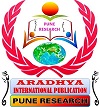
SPECIAL ISSUE NOV 2019 PUNE RESEARCH TIMES (SSSDEARA 2019)
1.1 SSSDEARA

SPECIAL ISSUE NOV 2019 PUNE RESEARCH TIMES (SSSDEARA 2019)
1.1.1 SSSDEARA

Quality is the biggest concern
in higher education in India. The University Grants Commission (UGC),
established National Assessment and Accreditation Council (NAAC) in 1994 to
check the quality of higher education institutions across the country. NAAC is
an autonomous body set up to look into the matters of quality teaching,
learning, research, extension, industry-academia collaborations, evaluation and
many other phenomenon’s. The earlier method of NAAC accreditation was felt to
be more subjective as it had lot of loopholes. Hence, to bring more
transparency, authenticity and objectivity, NAAC has revised its accreditation
and assessment process from July, 2017.
Student is the center of all academic activities and thus NAAC felt it
necessary to take the holistic survey of student’s satisfaction about the
teaching, learning and evaluation processes in all higher educational
institutions. However, this step has changed the views about NAAC accreditation
process as it focuses on the student’s satisfaction level. The present article
is an attempt to focus on the different dimensions of student’s satisfaction
survey regarding higher educational institutions and the future prospects of
NAAC accreditation process.
Key words: NAAC,
Quality, Higher Education Institutions, Student Satisfaction.
SPECIAL ISSUE NOV 2019 PUNE RESEARCH TIMES (SSSDEARA 2019)
1.1.2 SSSDEARA
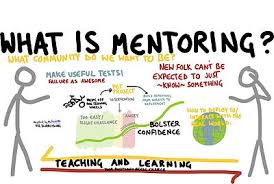
To survive in a new globally
competitive world, today's students will need creativity, problem-solving
abilities, passion for learning, a dedicated work ethic and lifelong learning
opportunities. Students can develop these abilities through instruction based
on Best Practices in teaching-learning strategies particularly by mentoring
them in the right direction. Mentoring system establishes a healthy relationship
between a student (mentee) and a teacher (mentor) in which mentee feels free to
ask anything to get rid off his or her problems. The mentor must be more experienced and
must have profound knowledge in his/her area of expertis-1. Mentoring system must leads to develop
partnership between someone with more experience and someone who wants to learn
from mentor. Communication with mentor is necessary to gain proficiency in the
career-2. Relationship developed during
mentoring affect the psychology of mentee, career guidance, role modeling, and
communication that occurs in the mentoring system in which the mentees and
mentors engaged-3. By keeping all these aspects in mind, we emphasized, in this
paper, on the implementation procedure of Student Mentoring System, evidences
of success and the problems encountered while implementing the Mentoring
System.
Key words: Mentoring system, mentee, mentor, best practice etc
SPECIAL ISSUE NOV 2019 PUNE RESEARCH TIMES (SSSDEARA 2019)
1.1.3 SSSDEARA
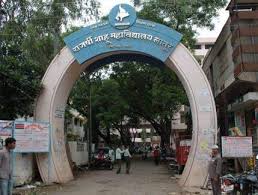
Libraries are the sources of
information and libraries play an important role in dissemination of
information and libraries play an important role in dissemination of
information and knowledge. This is an era where changes are taking place. So
rapidly in all spheres of life, with the advent of new technologies in the
field of information technology and telecommunication considerable changes have
also taken in education and so every field with the development of ICT and
other technology the concept of library changed. Now a day’s libraries are
acquiring processing and disseminating information in electronic and digital
forms. Library is known as electronic library, Digital library, Virtual
library. Polymedia libraries, knowledge resource centre etc. it has drastically
influenced their functions and services.
Keywords : College Libraries, UGC, IQAC, NAAC,
ICT, Social Web Tools
SPECIAL ISSUE NOV 2019 PUNE RESEARCH TIMES (SSSDEARA 2019)
1.1.4 SSSDEARA

In the
present scenario, it has become an utter need to foster in the students the
values that Education carries with it. Merely grabbing the degrees and grades
will not be sufficient for students to become a human being. In the educational
institutes, any students enhances his/her knowledge, however, at the same time
the dimensions of thought process also expand; they are to be directed in a
right way so as to make students able to lead a better social life. The present
paper focuses on NSS unit as one of the best means of exposure in higher
educational institutes for students to come front as human beings. Any society
comprises of individuals with different kinds of needs. Some components of the
society need to be paid more heed for various reasons. At such a juncture, an
NSS unit of the colleges can play vital role in providing a helping hand to
such communities.
SPECIAL ISSUE NOV 2019 PUNE RESEARCH TIMES (SSSDEARA 2019)
1.1.5 SSSDEARA

The Higher Educational
Institutions (HEI’s) are the goldsmiths of the society. They are not only the
medium of teaching and learning but HEI’s are the engineers of the social
structure. The National Assessment and Accreditation Council (NAAC) have
revised its guidelines for assessing and accrediting the Higher Education
Institutions (HEI’s) since July, 2017. It has focused on the changing role of
HEI’s and improving the quality of higher education throughout the country. Off
course, improving the teaching, learning, evaluation, research and extension
across the HEI’s is the key focus of NAAC; but at the same time serving the
society should also be the motive of all HEI’s. The structure of Indian society
is very complex one. It has multi dimensions in almost all fields. Thus, it is
supposed to be the prime duty of HEI’s to serve the society and bring harmony
in it. The students from different socio-economical background have their
unique needs. These needs are to be addressed and the HEI’s should work for the
holistic development of the society. The Criterion VII of NAAC is devoted to
institutional values and best practices, in which it is expected that the HEI’s
should contribute to the society in a novel manner. Off course, not for the
NAAC grading, but for integrating the society, the HEI’s must adopt some of the
distinctive best practices. The present research article is focused on
discussing few of such distinctive best practices by HEI’s to cater the
diversified needs of the society.
SPECIAL ISSUE NOV 2019 PUNE RESEARCH TIMES (SSSDEARA 2019)
1.1.6 SSSDEARA
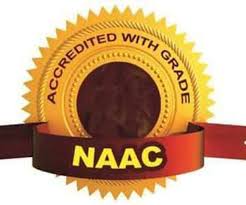
Education
is the basic pillar of any nation. To coach, train, undertake, analysis and
supply service to the community are the core mission ofhigher education in
India. In Asian countrieshigher Education is that the Second largest system
within the world. It’s witnessed several fold increase in its institutional
capability since independence- from 1950 to 2012, the quantity of universities
from twenty to concerning 431, schools from five hundred to 20,677 and
lecturers from fifteen, to 5.05 Lakhs with student enrolment from 1.00 100000
to over 116.12 Lakhs. Then to guard the standard of the upper education
establishments, the National Policy Mission propose the certification unit. In
respect to the same, the University Grants Commission (UGC), underneath section
twelve cardinal of the UGC Act (Act three of 1956), established the NATIONAL
ASSESSMENT AND ACCREDITATION COUNCIL(NAAC) as an Autonomous establishment on
sixteen September 1994 with registered workplace at Bangalore. NAAC has changed
the accreditation process for three times after it. Current framework is totally different than
previous two methods. Therefore, this work is an attempt to focus on the NAAC
accreditation process.
Keys Words: higher education, accreditation, colleges etc.
SPECIAL ISSUE NOV 2019 PUNE RESEARCH TIMES (SSSDEARA 2019)
1.1.7 SSSDEARA
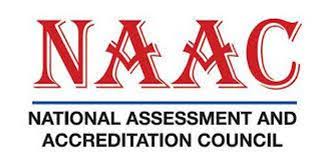
There are
several agencies whichdefine the quality of Higher education system of
India.The National Assessment and Accreditation Council (NAAC) is one of them
asan autonomous body. This body was established by the University Grants
Commission (UGC) to assess and accredit the higher educational institutions in
India. It was established in 1994. The
headquarters of NAAC is in Bangalore. There are three different stages and
changes in the method and process of NAAC. In 1994, it has different method, in
2007 it was framed with new frame work and now in 2016, the entire process is changed. In this new framework, students’ role is very
important. Online survey of the students NAAC office is taking and after the
expected survey the verification of SSS and DVV templates will be done.
Therefore current paper is a focus of importance of students’ satisfaction
survey in NAAC New Framework.
Key Words: UGC, NAAC, Students, satisfaction, survey, online data etc.
SPECIAL ISSUE NOV 2019 PUNE RESEARCH TIMES (SSSDEARA 2019)
1.1.8 SSSDEARA

ICT stands on information
and Communication Technology. It is timeliness process for to produce
information and to provide information of right users. Therefore, the library
professional accept the ICT technology and to implement for gives better
services to their students and users. The research paper highlights the ICT
based resources, use of internet, information literacy programme, E-resources,
OPAC system for users and organise various programme by the library
professionals for students satisfaction related according to their information
needs.
SPECIAL ISSUE NOV 2019 PUNE RESEARCH TIMES (SSSDEARA 2019)
1.1.9 SSSDEARA
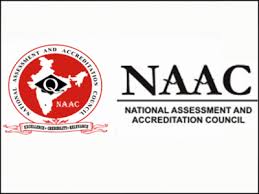
In efforts
to make our educational HEIs highly globally competent to meet with the
changing demands of the global market, NAAC has revamped its accreditation
process through introducing various new parameters. To move a step forward to
make accreditation process more transperanent, genuine and more outcomes
basedNAAC has introduced student satisfaction survey wherein students and
alumni are given prime importance in the quality assurance process and they are
the one who can decide the fate of your accreditation grade.
Keywords: Students, Alumni, NAAC, Student Satisfaction Survey.
SPECIAL ISSUE NOV 2019 PUNE RESEARCH TIMES (SSSDEARA 2019)
1.1.10 SSSDEARA
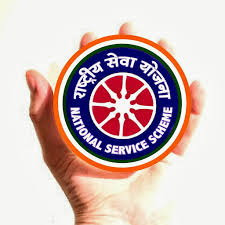
NSS
volunteers generally work in villages, slums and voluntary agencies to complete
120 hours of regular activities during an academic year. As per the fundamental
principles of National Service Scheme, a volunteer is expected to remain in
constant touch with the community. Hence, it is of vital importance that a
particular village/slum is selected for implementation of NSS programmes. As
the NSS volunteer is to live with the members of the community during the 7
days Special Camping Programme and learn from their experience during his/her
tenure in NSS, the village/slum should be carefully selected for adoption by
NSS unit.